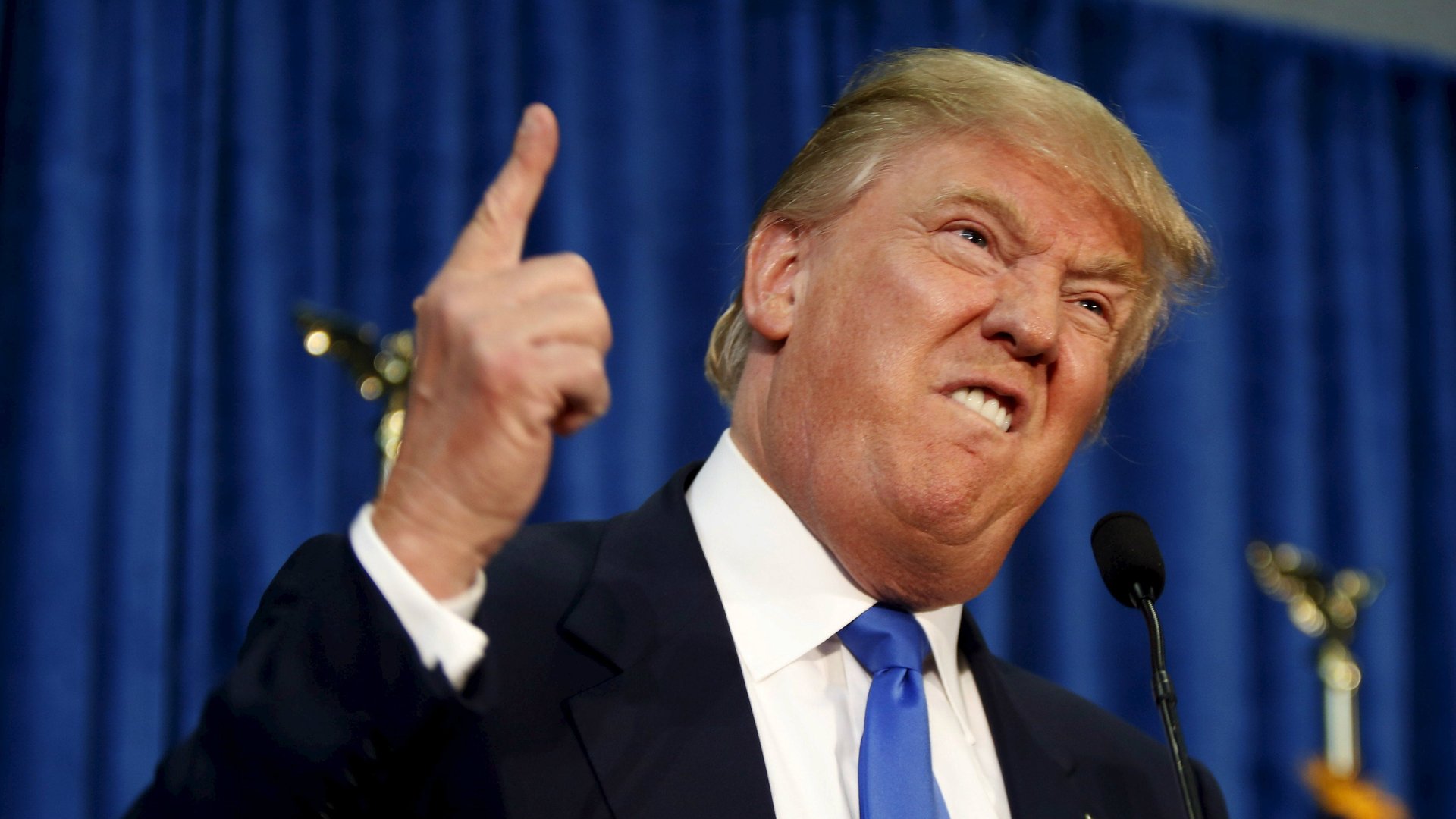Princeton theorist: Republicans today are taking notes from McCarthyism
The level of anti-immigrant rhetoric from certain Republican US presidential candidates has reached new heights in recent weeks. Some observers have have even begun to ask whether Donald Trump, for one, is a fascist. In considering that label, George Kateb, renowned political theorist at Princeton, says that Trump is more of a demagogue, and hasn’t yet shown the qualities of fascist leaders. That said, Kateb argues that politics today is reminiscent of another troubling period in American history.


The level of anti-immigrant rhetoric from certain Republican US presidential candidates has reached new heights in recent weeks. Some observers have have even begun to ask whether Donald Trump, for one, is a fascist. In considering that label, George Kateb, renowned political theorist at Princeton, says that Trump is more of a demagogue, and hasn’t yet shown the qualities of fascist leaders. That said, Kateb argues that politics today is reminiscent of another troubling period in American history.
“Appealing to fear, demand for strength, a suspicion of disagreement, accusing others of weakness or cowardliness or blindness—and falsely accusing them of such things. I’m reminded more of McCarthy than any of the European fascists,” he says. “I was a young fellow during McCarthyism, I know how easy it is to spread the contagion of fear and rob people of their rights.”
McCarthyism refers to the Cold War period during the 1950s when US Senator Joseph McCarthy launched thousands of largely unsubstantiated investigations in an attempt to find Communists on American soil. The era is associated with fear, widespread suspicion, and disregard for evidence, as well as a heightened sense of nationalism and denial of civil liberties.
When it comes to national security, the tactics outlined by Kateb are common among the Republican candidates.
As the Washington Post reports, Trump has used recent terrorist attacks “as reasons that the United States needs to be highly skeptical of all Muslims.” Trump is so suspicious of Muslims that he has proposed tracking every member of the religious group living in the US, and banning any Muslims from entering the country.
Meanwhile, Trump often paints President Obama as weak. He has accused the president of not feeling anger toward the Paris terrorists and has argued that the Obama administration’s decision to withdraw from Iraq was a gift to the “enemy,” adding “We don’t have victories anymore. We don’t win anymore.”
And when it comes to false accusations, Trump certainly has precedent: he continues to raise doubts over Obama’s birthplace.
While the most extreme examples come from Trump, Kateb says other Republicans, such as Marco Rubio and Ted Cruz, are not so different. Anti-intellectualism, use of fear, and nationalism are standard tactics. “These ingredients are common to many politicians on the right, and some so-called moderates and even Democrats. Those ingredients are endemic to the disease of politics,” says Kateb.
This context is important: Before McCarthy became prominent, there was a long history of conservatives attacking liberal policies, such as child labor laws and women’s rights, as “Communist.” Perhaps the tone of Republican attacks over the past few years, such as calling Obamacare “un-American,” has contributed to an environment where Trump can be a leading presidential nominee.
Kateb says fear over terrorism—both 9/11 and more recent attacks—has helped fuel the current political climate. But he also points to racism and the role of religious expression as two contributing factors.
“An appreciable part of this story is the horror many people feel at having a black man as president of the United States not once but twice,” he says. “They can’t bear the thought, certainly in the Tea Party, but I also think throughout much of the country, especially in the red states. Things would be a little less crazy if a black man was not president of the United States.”
Kateb, who was born in 1931, adds that the role of religion in public life has increased since Ronald Reagan was president. “I think part of the unbuttoned quality of American political life is owing to religious rancor over gay rights, abortion, and such things that are found abhorrent by some religious people,” he says. “Religion is more prominent than it was in my youth and middle age.”
The Republican party may be responsible for much of the bigotry and fear in US politics, but Kateb adds that he’s horrified by the silence from many Democrats— both in response to comments from Republican nominees, and to recent attempts by state governors trying to close their state’s borders to refugees.
“The Democrats in the Senate and the House seem to me, by the most part, stunned and silent, when they should be on the attack,” says Kateb. “I believe they don’t fully estimate the capacity of the electorate to be swept away.”
Though Trump has often been portrayed as a joke, Kateb believes he’s worth taking seriously. “He’s an intelligent man,” he says. “It would be foolish to think he’s foolish.”
And Kateb, who has spent his career writing on the nature of democracy, warns the US populous are by no means guaranteed to vote against the tactics employed by Trump.
“A democratic electorate is capable of magnifying anything that’s bad,” he says. “Democracy tends to be rambunctious and incontinent and given to fits of anger. Often it repents, but it still has these fits.”